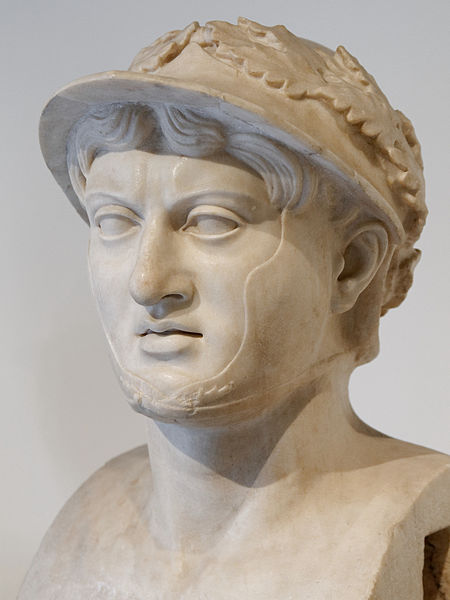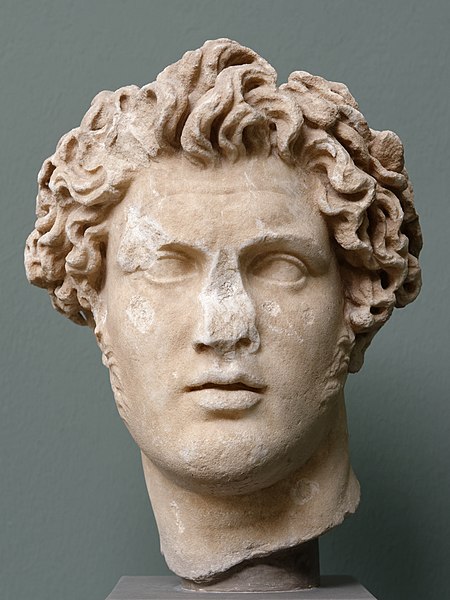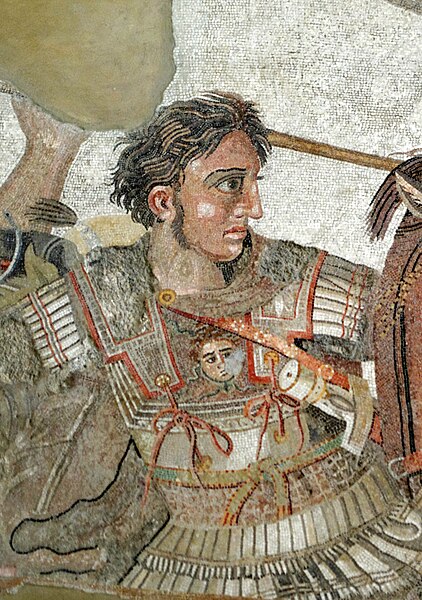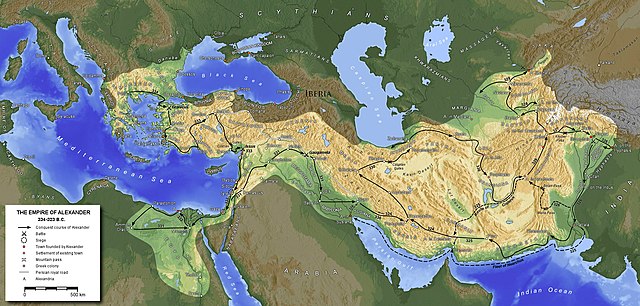Pyrrhus was a Greek king and statesman of the Hellenistic period. He was king of the Molossians, of the royal Aeacid house, and later he became king of Epirus. He was one of the strongest opponents of early Rome, and had been regarded as one of the greatest generals of antiquity. Several of his victorious battles caused him unacceptably heavy losses, from which the term "Pyrrhic victory" was coined.
A marble bust of Pyrrhus from the Villa of the Papyri at the Roman site of Herculaneum, now in the National Archaeological Museum of Naples, Italy
The rescue of the young Pyrrhus after an uprising against his father Aeacides of Epirus by Nicolas Poussin (ca. 1634).
The infant Pyrrhus is presented to King Glaucias by Nicolas-René Jollain (ca. 1779).
Bust of Pyrrhus of Epirus, Roman copy of Greek original inside the Ny Carlsberg Glyptotek in Copenhagen.
In classical antiquity, the Hellenistic period covers the time in Mediterranean history after Classical Greece, between the death of Alexander the Great in 323 BC and the death of Cleopatra VII, followed by the emergence of the Roman Empire, as signified by the Battle of Actium in 31 BC and the conquest of Ptolemaic Egypt the following year. The Ancient Greek word Hellas was gradually recognized as the name for Greece, from which the word Hellenistic was derived. "Hellenistic" is distinguished from "Hellenic" in that the latter refers to Greece itself, while the former encompasses all ancient territories under Greek influence, in particular the East after the conquests of Alexander the Great.
Hellenistic period
The Nike of Samothrace is considered one of the greatest masterpieces of Hellenistic art.
Alexander fighting the Persian king Darius III. From the Alexander Mosaic, Naples National Archaeological Museum.
Alexander's empire at the time of its maximum expansion.








